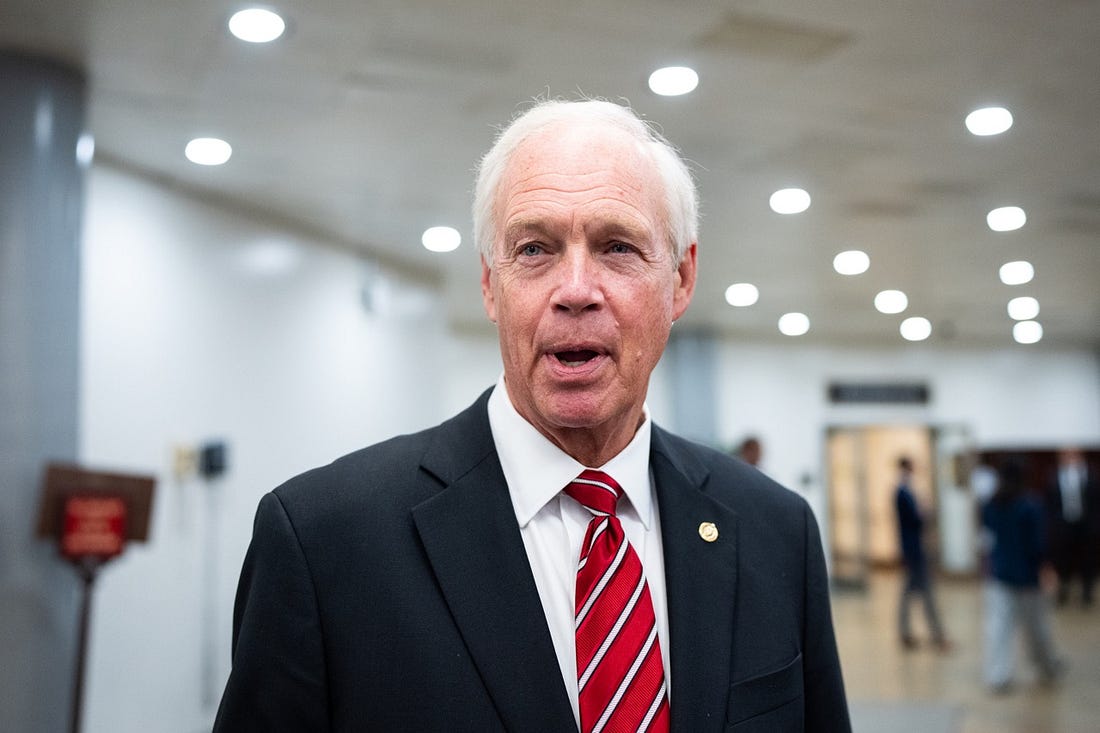|
 |
Good afternoon, Press Pass readers. Today is Veterans Day. Many veterans subscribe to The Bulwark, and I hope each of you feels recognized and appreciated. If you haven’t already checked out our homepage, have a look at today’s stories keyed to the holiday. We love having you as readers and we thank you for your service.
Today’s edition tries to get answers to one of the questions still lingering even after the Senate advanced a deal to reopen the government Monday night: Do Republicans remain on board with Trump’s wish to eliminate the legislative filibuster? Even Republican supporters of the procedural tool think it’s heading for the dustbin. I’ll share what I learned from key advocates on both sides of the debate.
In addition, one of the components of the government-funding deal is a promise from Senate Republicans that there will be a floor vote on extending the enhanced Affordable Care Act tax credits in December. Unfortunately for the Democrats who brokered the deal, we have no reason to think anything will come of this vote. But the silver lining is that it could force a broader debate in Congress about health care, which is not the GOP’s greatest strength. Finally, Big Tech is divided over the Catholic Church, with one prominent Silicon Valley figure catching some heat online after some ill-advised late-night posting. All that and more, below.
Nuking the Filibuster Is Still on the Menu
A deal to reopen government isn’t enough for Trump’s most loyal Senate Republicans.
Filibuster specter
The deal to reopen the government after nearly seven weeks of stasis may have calmed Donald Trump’s thirst to eliminate the legislative filibuster. But don’t expect for the issue to go away entirely. Nuking the filibuster, either partially (e.g., just for appropriations and continuing resolutions) or for all legislation, remains a compelling GOP interest. And it could very well be a party pursuit going forward—for a few reasons.
First, Republicans blame Democrats for the soon-to-be-concluded shutdown, which could have been prevented if there weren’t a filibuster. Second, Republicans are now convinced that Democrats will eliminate the filibuster the second they regain power. And third, and perhaps most importantly, Trump still wants the filibuster gone, and what he demands of the GOP, he most often gets.
When I asked Sen. Ron Johnson (R-Wis.), one of the leading proponents of nixing the filibuster, whether the deal to reopen the government had effectively put the debate to rest for the foreseeable future, he said, “I don’t think so, because we’ve seen what the Democrats did here.”
“The only reason they kept the government shut down is they don’t want to have this president have success.” Johnson added, indicating that he will consider Democrats responsible for any change to the filibuster, even if Trump is openly pining for it. “It’s that cynical.”
“Moving forward, are they going to actually try and help us solve these problems? Pass [a] good piece of legislation for the best American public? I would guess: probably not,” Johnson concluded. “So they’ve pretty well telegraphed what their game plan is here. It’s going to be obstruction all along.”
“I don’t know,” said Sen. Ted Cruz (R-Texas) of whether Trump would continue to push for the elimination of the filibuster. Cruz has been a longtime supporter of the filibuster, both using it in his own politically motivated shutdowns and hailing it as a backstop preventing “absolute devastation.”
“There’s a natural give and take to politics,” Cruz added. “So the more obstructionist the Democrats are, the more the pushback is going to go the other direction. . . . I feel confident this is not the last time we’ve had that conversation.”
Ideologically minded Republicans like Cruz have long held the filibuster in high regard, believing it can be used to prevent the codification of more liberal or progressive policies and even prompt genuine compromise. On the flip side (although with a few exceptions), Democrats have historically hated it for how it’s been used to obstruct their legislative priorities. They believe it doesn’t compel compromise so much as force majority parties to stuff everything they can into big bills that can pass through reconciliation rules (i.e., a simple majority vote).
If populist Republicans like Johnson and Trump get their way, Democrats might be able to get the filibuster eliminated without having to actually hit the nuclear option button.
